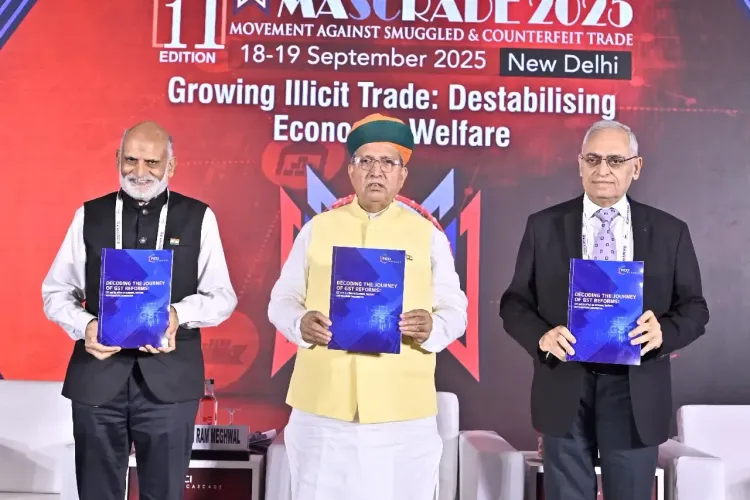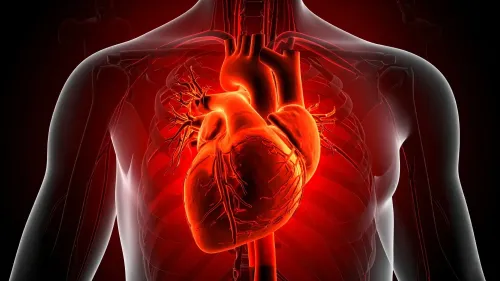Will GST Reforms Effectively Curb Counterfeit Goods Trade?

Synopsis
Key Takeaways
- GST reforms are set to reduce counterfeit goods trade.
- Increased awareness among stakeholders is essential.
- GST 2.0 provides relief to MSMEs through rationalized tax rates.
- Lowering taxes can combat illicit trade.
- Potential long-term fiscal benefits from these reforms.
New Delhi, Sep 18 (NationPress) The implementation of GST reforms is set to significantly decrease the counterfeit goods trade within the country, stated FICCI CASCADE Chairman Anil Rajput on Thursday.
In a conversation with IANS during an event in the national capital, Rajput shared, 'FICCI CASCADE hosts its annual flagship conference, MASCRADE, which is a proactive initiative against smuggling and counterfeit activities.'
He emphasized that both smuggling and counterfeit goods damage the economy, highlighting the need to raise awareness among all stakeholders—including policymakers, industries, and consumers.
Regarding the anticipated GST 2.0, Rajput described it as a transformative reform.
'One of the key factors driving the counterfeit goods trade is high taxation. The government has addressed this by implementing GST reforms that lower taxes. This move will assist in curtailing the counterfeiting trade across various sectors,' Rajput explained.
The GST 2.0 reforms aim to alleviate household tax burdens, bolster MSMEs, and tackle illicit trade.
A report by FICCI CASCADE and Thought Arbitrage Research Institute (TARI) revealed that the number of items taxed at 5 percent surged from 54 categories under GST 1.0 to 149, effectively reducing the GST impact for rural families from 6.03 percent to 4.27 percent and for urban households from 6.38 percent to 4.38 percent.
For businesses, particularly MSMEs, GST 2.0 introduces streamlined rates that rectify distortions from the inverted duty structure. Key sectors vital for rural employment and manufacturing—such as tractors, farm machinery, fertilizers, textiles, handicrafts, auto parts, and construction materials—are now subjected to lower, more reasonable rates, as indicated in the report.
This adjustment unlocks previously blocked input tax credits, releasing working capital and improving competitiveness. Digital-first compliance measures, including risk-based assessments, automated real-time refunds, and expedited dispute resolution through the newly established GST Appellate Tribunal (GSTAT), will facilitate the formalization of the economy.
The report noted that moderating the standard slab to 18 percent and moving essentials to the 5 percent bracket minimizes price discrepancies that fuel smuggling and counterfeiting, thereby assisting in the formalization of the economy.
While short-term revenue losses are expected, the doubling of indirect tax collections and an increase in taxpayers under GST 1.0 suggest potential long-term fiscal advantages, the report stated.
Highlighting the 40 percent slab for demerit goods, particularly tobacco, which may sustain illicit markets, FICCI CASCADE advocated for a balanced approach to demerit taxation to discourage smuggling.










